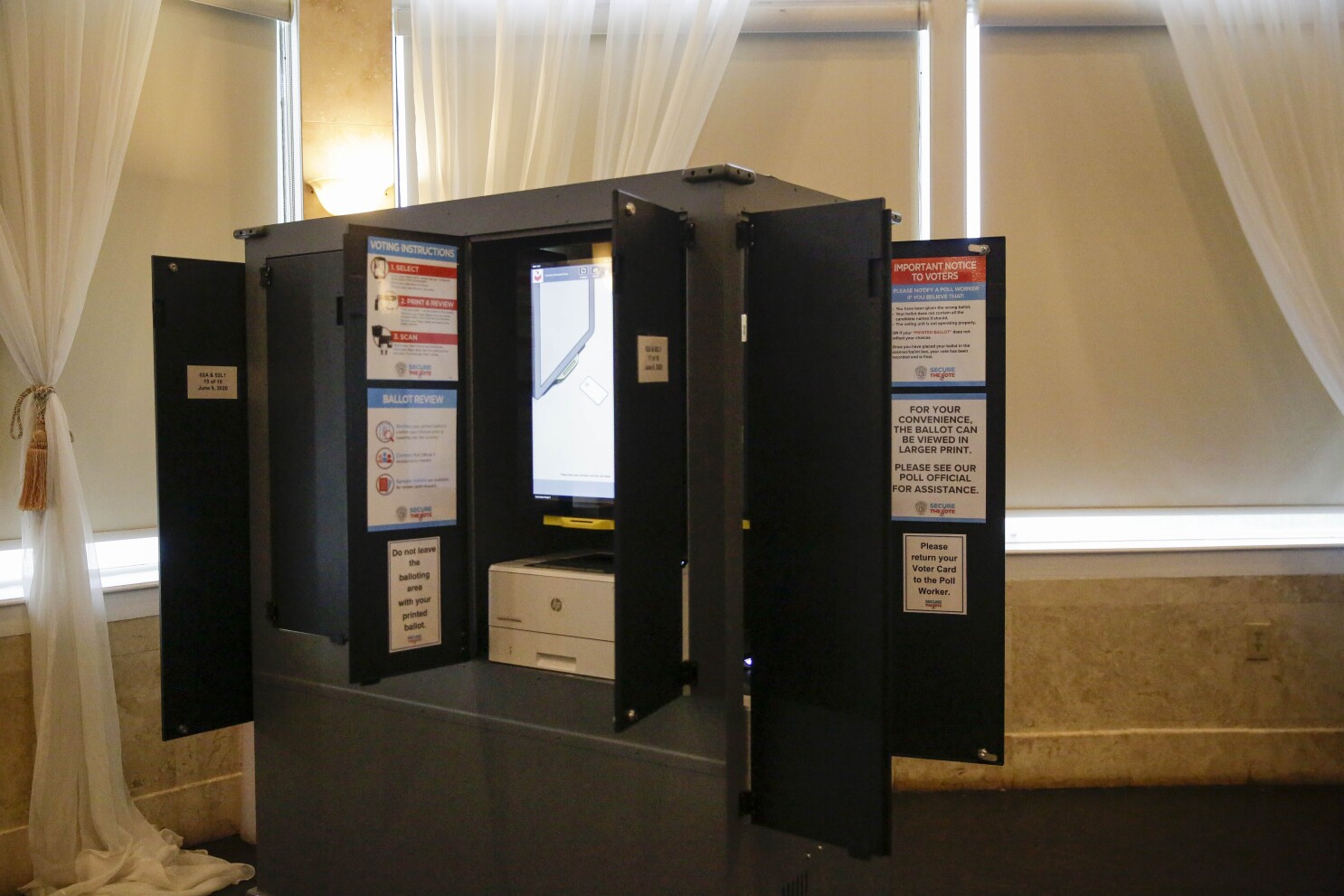A federal judge has decided not to block Georgia’s electronic voting system, which was challenged in a longstanding lawsuit over alleged vulnerabilities and operational issues. U.S. District Judge Amy Totenberg ruled that the plaintiffs—activists and voters—failed to prove their claims regarding the system’s flaws impacting their constitutional rights.
According to Totenberg, the plaintiffs did not demonstrate that the issues they identified prevented them from voting or diluted their votes. As a result, the judge concluded that they lacked standing to bring the case to court, effectively dismissing the merit of their arguments.
Lawsuit Challenges Georgia’s Voting System Over Security Concerns and Ballot Verification Issues
The lawsuit against Georgia’s electronic voting system dates back to 2017, long before the contentious 2020 election cycle. Filed by individual voters and the Coalition for Good Governance, the case initially targeted the outdated paperless voting machines used in the state.
Following Georgia’s adoption of a new voting system in 2019, the lawsuit was amended to challenge the updated system, which includes touchscreen machines that print ballots with a human-readable summary and a QR code for vote counting. Despite years of legal battles, the case was not directly tied to the election fraud claims made by former President Donald Trump and his supporters following the 2020 presidential election.

The heart of the lawsuit revolves around concerns about the security and accuracy of Georgia’s touchscreen voting machines. Plaintiffs argued that voters cannot verify the accuracy of their ballots because they cannot read the QR code that is used by the scanner to count votes.
Additionally, they complained that voters are required to check their selections twice—first on the screen and again using the printed ballot. The plaintiffs sought an injunction to stop the use of the touchscreen machines as the standard method of voting, claiming these issues could undermine voter confidence in the election process.
Totenberg Acknowledges Concerns, But Denies Blocking Voting System Amid Security Vulnerabilities
Despite the lawsuit’s failure to block the voting system, Totenberg acknowledged the concerns raised by the plaintiffs and their role in prompting legislative action. A new law passed by Georgia lawmakers in 2023 mandates the removal of QR codes from ballots by 2026. While Totenberg highlighted the importance of this change, she also pointed out that it would require additional funding and government action to implement.
Security concerns about the voting machines, particularly regarding potential vulnerabilities in the QR code system, were also highlighted during the trial, with testimony from University of Michigan computer scientist J. Alex Halderman. Halderman warned that hackers could alter QR codes, install malware, and access county passwords.
Judge Totenberg’s ruling brings closure to a complex legal battle, despite her repeated concerns over the security and transparency of Georgia’s voting system. While she had previously raised alarms about the state’s election practices, including blocking the use of older voting machines in 2019, she ultimately decided not to halt the use of the new system.
This decision came amid growing concerns from conspiracy theorists who seized on Halderman’s findings to support claims of election fraud. However, Halderman himself emphasized that his role was to identify vulnerabilities, not to investigate potential exploitation of those weaknesses, further distancing the findings from any claims of election interference.


